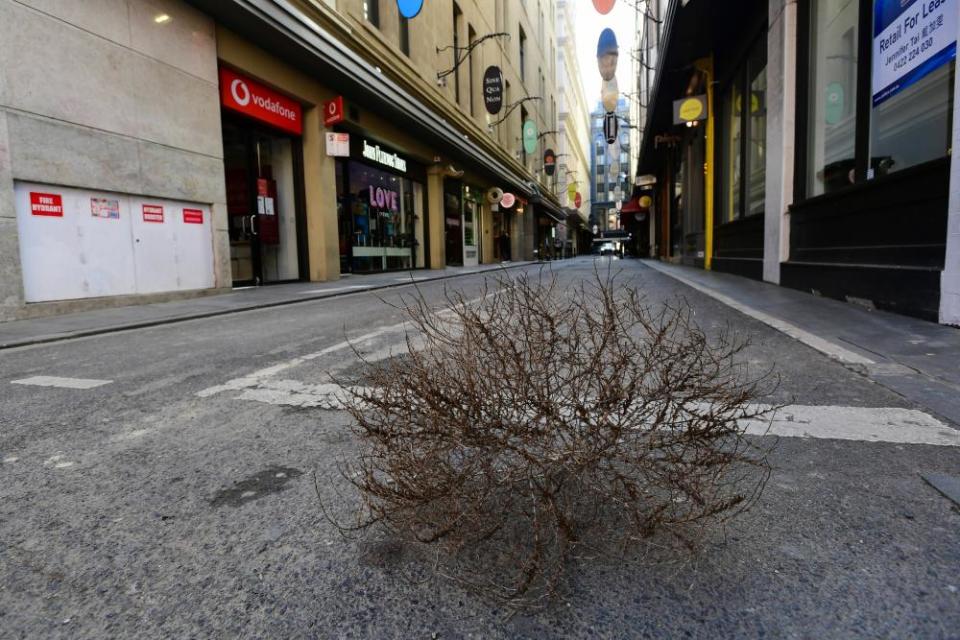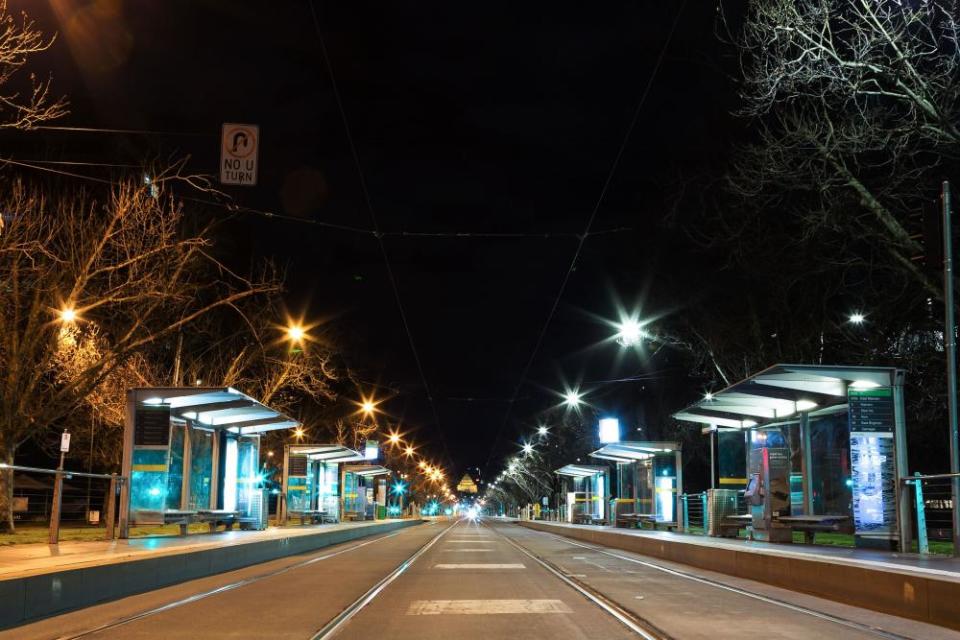'It gets into your bones': the unique loneliness of coronavirus lockdown when you live alone
On the bad days, Gen Ford says the loneliness feels physical.
“Loneliness is not something that I had really had much experience of, thankfully, which I recognise is a pretty sweet position,” she says. “But just, it gets into your bones.”
The administrative worker celebrated her 40th birthday alone in her apartment in one of Melbourne’s bayside suburbs.
Related: The truth about self-care: how isolation has changed the way I look after myself
Under the restrictions brought into effect in Melbourne to combat Victoria’s second wave of Covid-19, visitors to the home are banned in most circumstances.
It has taken its toll, and Ford says she has had some dark days.
“On a good day, I would wake up pretty early, I would go for a walk. I would get in the shower and then I would start my workday at my kitchen table,” she says. “On a bad day, I would deal with some emails from bed … it’s pretty much Groundhog Day.
“Some days I can barely open a can of beans, [it] is like the emotional reserves that we have are just all consumed with just getting by.”

Ford is one of 521,828 Victorians who live alone, according to the Australian Bureau of Statistics.
Under Melbourne’s strict lockdown rules, couples who live apart can visit each other but other visitors are banned, so a lot of single people who live alone, like Ford, have spent weeks completely isolated. Victorians are allowed to exercise with one other person for an hour outdoors, but that person has to live nearby because of the restrictions on movement. In practice, this means that unless you live in the same suburb as your friends and family, you are unlikely to be able to exercise together.
Other countries have had lockdown exceptions for single people. In New Zealand’s alert level three, households could have family or isolated people added to their “bubble”. In the UK, when restrictions eased in June, people who lived alone could form a bubble with another household.
The Victorian MP and leader of the Reason party, Fiona Patten, is calling for similar exceptions to be implemented as restrictions are eased in Victoria.
“We would certainly like to campaign for the chief health officer to recognise that singles also deserve to have a contact,” she tells Guardian Australia.
Patten did a callout for feedback from Victorians who live alone and says the response has been “heartbreaking”. A few had opted to break the rules in order to cope, she says.
“I spoke to a fellow yesterday, actually, he said he had a friend that he volunteers with and during stage-three days he said, ‘You know what? We’re going to continue meeting for lunch, we’re going to continue doing this.’”
Patten points out the rule for couples, which allows you to visit someone you’re in an “intimate personal relationship” with, is unenforceable since there is no real way to verify relationships.
She says it also means that while single people who live alone and are following the rules have no contact, people with partners who live in large sharehouses could have contact with many people.
Draft Victorian government documents leaked to the Herald Sun show that a bubble system, in which single people can have a nominated visitor, is under active consideration. The premier, Daniel Andrews, has previously said it was something being worked through as part of the roadmap for the easing of restrictions to be announced on Sunday.
“We do know, because we have had a lot of feedback, that this is particularly challenging for people who live on their own and we want to try and support them, and indeed every Victorian,” Andrews said.
Related: Melbourne stage 4 restrictions and Covid lockdown rules explained
Prof Mike Kyrios, director of the Órama Institute of Mental Health, Wellbeing and Neuroscience at Flinders University, says a bubble is a “brilliant” idea, and the isolation brought on by lockdown can harm the mental health of people who aren’t already vulnerable. He says it will be especially detrimental for people with existing mental health issues.
“I think this is just an awful period for them, I mean, being stuck at home on their own when you’re depressed or anxious will just exacerbate any of those feelings,” he says.
It has now been eight weeks since Melbourne went back into lockdown. The single people Guardian Australia speaks to say they preferred living alone before the pandemic because it allowed them the choice of when to see people. But that choice has been taken away.
Emma Osborne, 35, who works in policy during the day and as a science fiction writer at night from their home in Footscray, says the lack of physical contact has been the hardest part.
“In the past it’s been very easy for me to find a friend to go for a drink with, to reach out to somebody when I was feeling a bit lonely or needed some company,” they say. “But that’s obviously not a thing we can really do …
“This is so, so draining and upsetting and there are people dying and a lot of friends overseas who are in countries who are like not doing well. And all you want is a hug and that’s absolutely not allowed and possibly won’t be allowed for quite a while longer.”

Osborne says their ADHD means it has been difficult to concentrate on work, and they also miss the social aspect of the office.
“Creatively it has also been hard. [I am] managing to write a little bit but mostly not.”
Lachlan McIntosh’s housemate moved to Bendigo at the start of lockdown, and although living alone is temporary, the 22-year-old politics student at La Trobe University says he has found it difficult to stay motivated in the past few weeks.
“It’s like a bit of a mode of stasis, waiting for it all to be over and not taking on any responsibilities until that’s all sorted,” he says. “It’s getting to even an introvert like me.”
Related: ‘I live alone at sea. Here's how to be happy in isolation’
Mary-Louise McLaws, professor of epidemiology at the University of New South Wales, argues that any bubble would need to have a maximum number of members, and be exclusive, so people wouldn’t be allowed to change bubbles without isolating first for 14 days.
People would also need to consider the risk involved if someone in the bubble lived in an area with a high number of cases, or worked in a high-risk occupation. But McLaws says bubbles as a compassionate gesture could make people more willing to follow the rules. “Compassion may improve the community’s willingness to adhere to restrictions rather than merely being forced to comply.”
Osborne says a bubble to allow them to have a friend over for a cup of tea or a movie would be “life-changing”, while McIntosh says he would use it to visit his mum for dinner.
A Change.org petition started by Ford and calling on the Victorian government to allow single people to have visitors, has more than 24,000 signatures. Ford says it is about recognising that single people have as much right to social connection as intimate partners.
“I’m trying to stay away from any kind of comparison games, because no one is having an easy time with this, but the point I’m really trying to make is that isolation is a particularly unique experience, and even a known factor in really poor mental health.”


